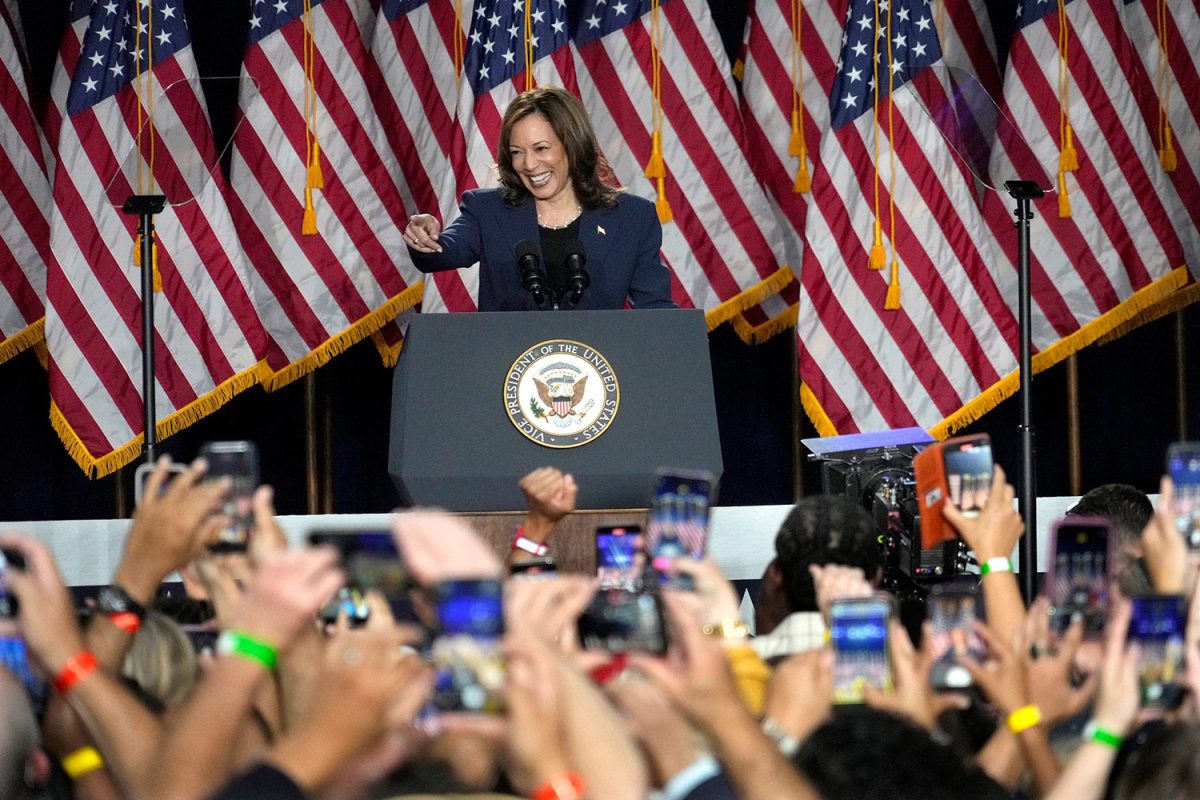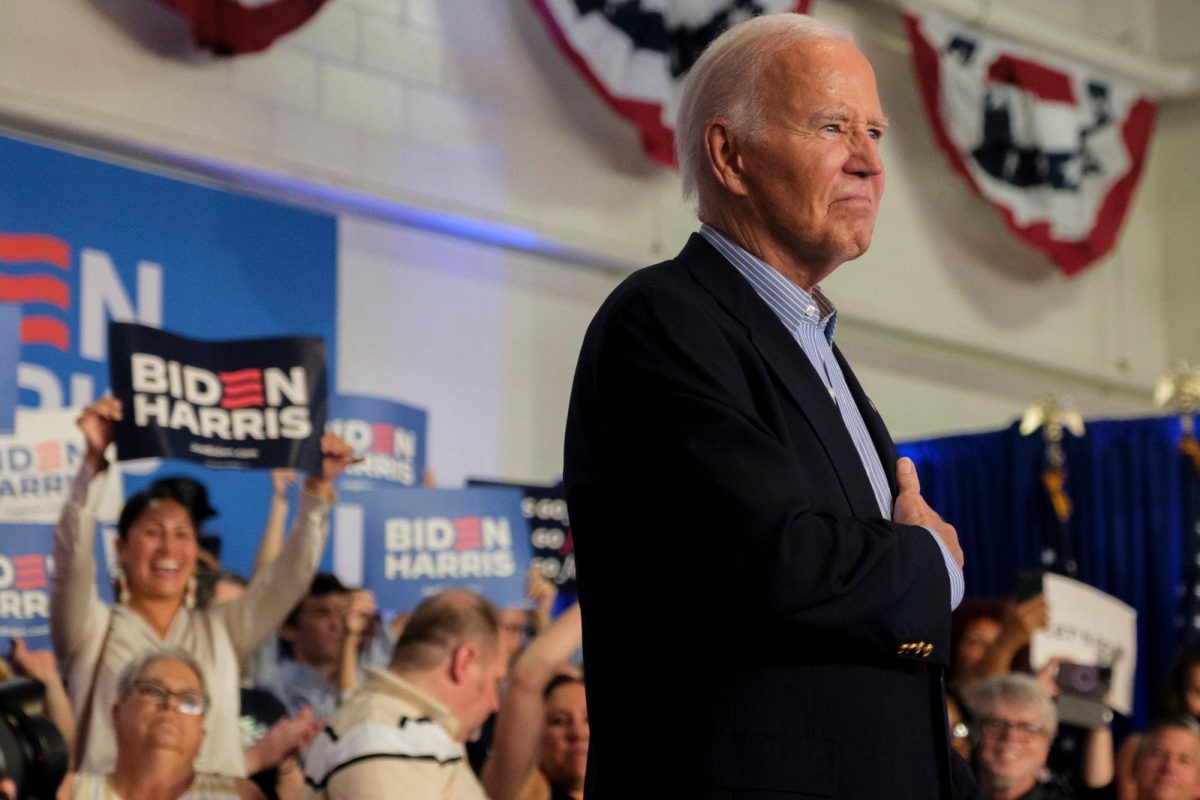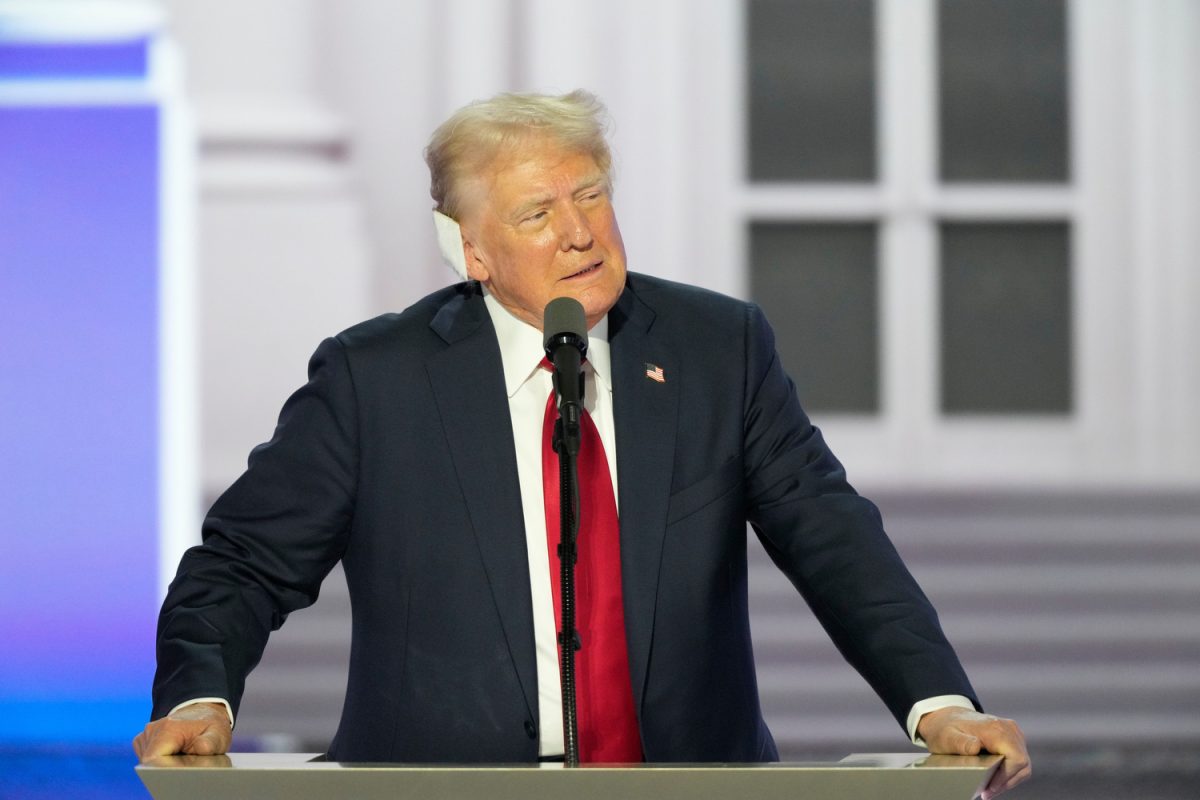The latest edition of the Des Moines Register/Mediacom Iowa Poll found that a plurality of voters in Iowa’s 1st Congressional District would choose a generic Democrat over a generic Republican.
The March poll could hint that Democrats, whose national campaign arm has targeted the 1st Congressional District as a path to regain control of the U.S. House, could gain ground in the district.
The poll shows the Republicans’ “red wave” — actualized in Iowa during the 2022 midterms —might be threatened as Iowa Democrats angle to gain ground in the state, hoping to use abortion rights to poke a hole in Republicans’ hold on the state.
Incumbent U.S. Rep. Mariannette Miller-Meeks, R-Iowa, who currently represents Iowa’s 1st Congressional District, is banking on her experience in Washington, D.C., fighting against President Joe Biden’s “reckless policies” in her bid to win over voters this fall.
“What polling in Iowa and across the nation has consistently shown is that Americans are fed up with Biden and Democrats’ gross incompetence handling inflation and the southern border crisis,” a Miller-Meeks campaign spokesperson wrote in a statement to The Daily Iowan. “Come November, it won’t take long for the first District to choose between Mariannette and another Democrat rubber stamp for the Biden Agenda.”
Christina Bohannan, the lone Democratic candidate for the 1st Congressional House District, is banking on Iowan’s support for abortion rights, among other things, to angle for Miller-Meeks’ seat.
“They’re not using common sense … They’re actually making things harder for Iowa families,” Bohannan said in an interview with the DI. “Instead of doing something productive, like pass a new farm bill or working to bring down the cost of groceries and health care, they’re actually attacking public education and teachers. They’re putting bans on all abortions with no exceptions, bans on birth control, and even bans on IVF fertility treatments that help infertile people to have a child … That is not Iowa.”
What does the poll say?
The March Des Moines Register/Mediacom Iowa Poll found that 49 percent of likely voters polled who live in the 1st Congressional district would choose a generic Democrat, while 45 percent would choose a Republican.
While the results are within the poll’s margin of error, which is 6.7 to 7.1 percent, it could still hint that the district is becoming more competitive after Miller-Meeks won the seat in the last two elections.
The polling showed that Republicans led with wide margins in the 2nd and 4th Congressional Districts, with a generic Republican leading by a mere 3 percentage points in the 3rd Congressional District.
University of Iowa political science Professor Timothy Hagle said it may be too early to take these polls seriously.
“I wouldn’t put too much stock in the fact as to why one is different from the other, looking at one and three, because they’re so close,” Hagle said.
Iowa’s districts show stark contrast between Democrat and Republican voters
Iowa’s 1st and 3rd Congressional House Districts have been home to more competitive races throughout the years. In 2022, Miller-Meeks beat Bohannan by 6.8 percent, or more than 20,000 votes.
The 2022 3rd Congressional District race was even closer between then-incumbent U.S. Rep. Cindy Axne, D-Iowa, and current Rep. Zach Nunn, R-Iowa. Nunn beat Axne by just 0.7 percentage points or more than 2,000 votes.
Iowa State University political science Professor Mack Shelley said the 1st and 3rd Congressional Districts that represent more urban areas of southern Iowa are the ones voting for Democrats. Inner-city Des Moines heavily favors Democrats, while the suburbs and outer rural areas lean more Republican.
According to the Secretary of State’s website, Polk County has 93,548 active Democratic voters and 73,987 active Republican voters.
The same can be said for the 1st district, which includes Iowa City and heavily votes Democrat, while rural areas vote more Republican. Johnson County has 38,944 active Democratic voters, but 14,829 active Republican voters in the county.
The 2nd and 4th Congressional Districts lay in the northern half of Iowa, Shelley said these districts may vote heavily Republican due to the vastly rural areas. The 2nd Congressional District has 125,453 active Democratic voters, and 143,045 active Republican voters, the 3rd District shows an even larger difference with 84,127 active Democratic voters and 182,555 Republican voters.
Highly politicized issues, especially abortion, can be a leading factor in these rural, religious districts, Shelley said.
The 4th Congressional District has highly active religious-affiliated groups such as Dutch Reform, Catholicism, and Evangelical Protestant, Shelley said. While the 2nd District isn’t the same, but with a highly Catholic population in the Dubuque area, it favors Republican ideals.
Communities surrounding Universities contain large populations of Democrats
Shelley said that education level can play a role in the parties that voters support. Shelley said that counties, where Iowa’s three public universities are located, contain high concentrations of Democratic voters.
This is true in Story County located in Iowa’s 4th Congressional District, which is home to Iowa State University but is overrun by Republican voters in the rural areas of the 4th Congressional District.
“The more urban components, the more heavily educated, as a way to say, electoral component particularly in and around Johnson County… That plays a major role in helping Democrats for at least the last few decades,” Shelley said. “So, people with more advanced educational attainment have been more inclined to vote for Democratic candidates over Republican.”
RELATED: National Democrats target two Iowa U.S. House districts to regain control
Hagle said although Johnson, Blackhawk, and Story Counties all lean more liberal — and also hold the three universities in Iowa — he said it generally isn’t the students who contribute the most to the voting population.
“The students at the University of Iowa come from all across Iowa and other states as well, so there’s the impression that there may be more liberal than we are as a group,” said Hagle. “So it’s really the community as a whole of Johnson County.”
In a poll conducted by Pew Research in 2019, 41 percent of Democratic voters had a college degree or higher, while 29 percent of Republican voters had a college degree or higher. This was not always true, in 1996, 27 percent of Republican voters had a college degree or higher, while only 22 percent of Democratic voters had a college degree or higher.
Shelley said political divides based on education level can be attributed to voters with more education considering more ideas and taking a more critical, less populist, approach to policies.
“In terms of having a higher level of education attainment, you’re probably better able to be flexible in terms of idea, incorporate a wider swath of alternatives,” Shelley said. “Less educated people, whatever they sort of had instilled in them probably from the time they were growing up as children, it’s going to be harder for them to escape whatever that early mindset was.”










